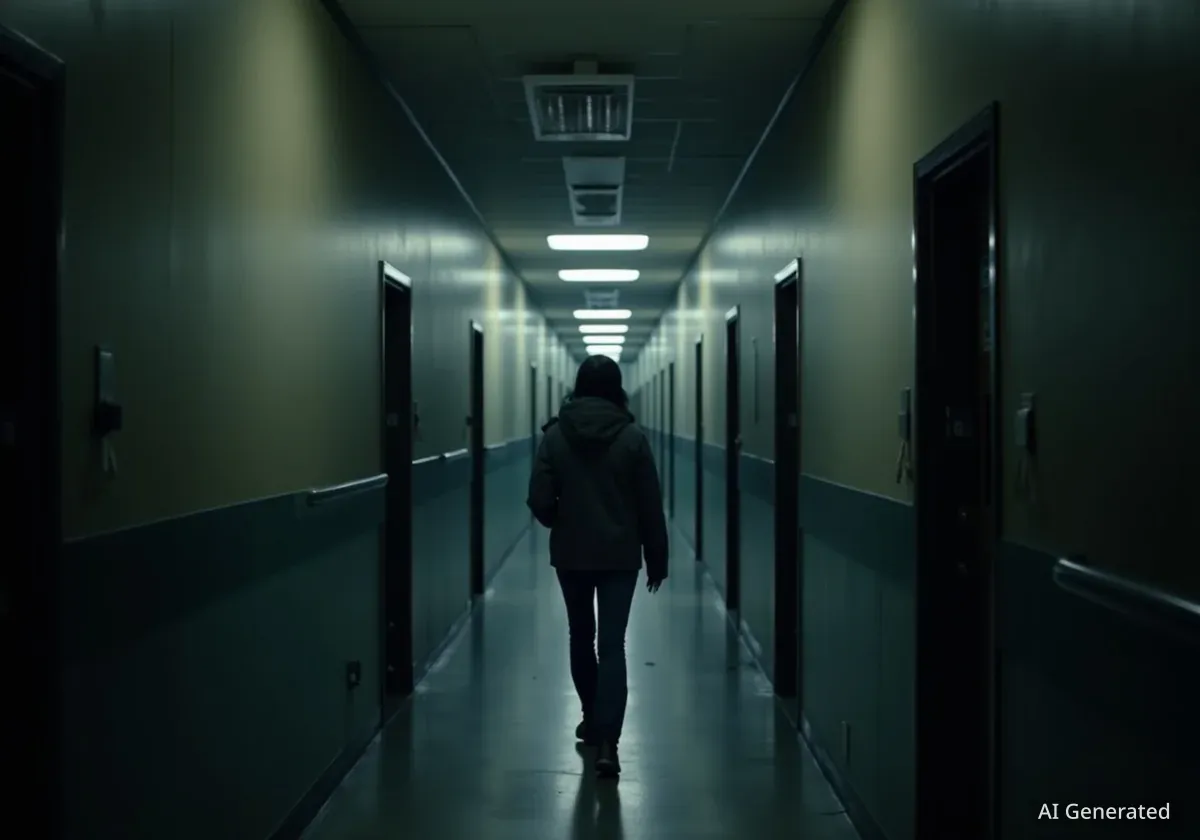A pilot emergency shelter in Bern for women and FINTA individuals has experienced constant full occupancy since its opening in June. This high demand highlights the urgent need for permanent, safe overnight accommodation options in the city. Bern authorities are now actively seeking a long-term solution as the current temporary facility approaches its closure date.
Key Takeaways
- Bern's FINTA emergency shelter has been fully occupied nightly since late July.
- The pilot project confirms a significant need for safe housing for vulnerable individuals.
- The city is looking for a permanent location after the current lease ends in April 2026.
- Homelessness in Bern has increased steadily since 2021.
- The shelter offers private rooms and a safe environment, contrasting with mixed-gender facilities.
Pilot Project Reveals Critical Need for Shelter Spaces
The temporary emergency shelter, located in a quiet side street in Bern's Lorraine district, opened its doors in June. It was established as a pilot project by the City of Bern to assess the need for a dedicated facility for women and FINTA individuals. After three months of operation, the data is clear: the demand is substantial.
The facility provides a safe haven for one, two, or multiple nights, with stays capped at three months. This structure aims to offer immediate relief and a stable environment. Life on the streets is particularly difficult for women and FINTA persons, who often face a higher risk of sexual violence and feel unsafe in traditional mixed-gender shelters.
"From day one, people came to us. In the first week, we had five to seven admissions each day. Since the end of July, we have been full every night," stated Bettina Stocker, the shelter's director.
Stocker expressed concern about the upcoming winter months. Her team regularly has to turn people away. She estimates this happens "on average once or twice a week." The shelter's 18 beds are a "drop in the ocean," but they provide crucial support to those in need.
Homelessness on the Rise
- Bern's homeless population has grown consistently since 2021.
- Existing emergency shelters in the city are also frequently at full capacity.
- The FINTA shelter offers 18 dedicated beds.
City Seeks Permanent Solution Amid Rising Homelessness
The City of Bern acknowledges the increasing number of homeless individuals. City data indicates a continuous rise in homelessness since 2021. To address this, Claudia Hänzi, head of the city's social welfare office, explained that twenty additional temporary beds will supplement existing services during winter. These beds will be available to all individuals needing shelter, not only women and FINTA persons. The exact locations for these additional beds are still undecided.
The FINTA emergency shelter provides a unique environment with more peace and privacy compared to general shelters. Most clients receive a private room and can stay at the facility during the day. They share kitchens and bathrooms on each floor, creating a communal living atmosphere similar to a shared apartment.
Understanding FINTA
FINTA is an acronym that stands for Frauen (women), Intersex, Non-binary, Trans, and Agender individuals. This term is used to specifically include all people who identify as women or whose gender identity is outside the traditional male/female binary, recognizing their particular vulnerabilities and needs for safe spaces.
Diverse Client Base Utilizes Specialized Support
Bettina Stocker highlighted the diverse group of people who use the FINTA shelter. The clients range from individuals who have lived on the streets for many years to those who recently left their homes due to domestic violence. This diverse group underscores the varied circumstances leading to homelessness and the importance of tailored support services.
Stocker shared an example of a client who lost her job and, consequently, her staff accommodation. Such situations demonstrate how quickly unexpected life events can lead to a need for emergency housing.
Challenges in Finding a New Location
The current lease for the FINTA emergency shelter ends in April 2026. The house is old and requires significant renovations, which makes it costly to maintain. Additionally, the building is not accessible for people with disabilities. Because of these factors, the city has decided not to purchase the property for a permanent solution.
The City of Bern is collaborating with the Salvation Army to find a new location for the shelter by May of next year. A successor solution has not yet been confirmed.
"We are looking for a house with enough space for 18 people and a small team, ideally with a solid basic structure," Stocker explained. "It should be centrally located so our clients can reach us on foot. And if there was some outdoor space, we would be very happy," she added with a smile.
The search for a suitable, long-term location is crucial to continue providing these essential services to a vulnerable population in Bern. The ongoing high demand confirms that such dedicated facilities are not just a temporary need but a vital part of the city's social infrastructure.
The Bernese political landscape is now evaluating the long-term needs for such specialized shelters. The success of the pilot project clearly demonstrates the necessity of continued support and expansion of these services.
This initiative represents a key step in Bern's efforts to address the complex issue of homelessness, particularly for those who face additional risks due to their gender identity.




